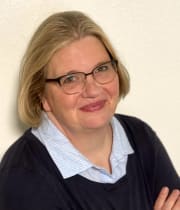Ramona is now cancer free and traveling the world

By Cheryl Reid-Simons
For the past five years, Ramona Owens has been traveling the world at a furious pace. Trips to Europe, New York, the Caribbean and Hawaii along with road trips to Oregon and Idaho.
“You go when you can go,” she reasons.
It’s an impressive schedule for any woman nearing 80. But when you realize that five years ago she was considering hospice care, it seems downright miraculous.
“I know the exact date: January 12, 2012,” Owens says.
That’s the day she learned she had stage IV ovarian cancer. The disease had spread to her lungs and her prospects of recovery were bleak.
“The doctors (in the emergency room) didn’t seem to think there was much hope,” she recalls.
One of the most difficult aspects of ovarian cancer is finding it before it spreads. Symptoms are often vague and easily dismissed, like fatigue and bloating. In this case, Owens had broken her arm and just wasn’t bouncing back well, so her daughter brought her to the emergency room at Allenmore.
“I had bloatiness and fatigue but other women my age seemed to have that also,” she says.
Owens also chalked up the fatigue to the fact that she’d been caring for her 94-year-old mother for some time. The cancer diagnosis seemed to come from nowhere.
“I was in shock,” she says. “I was not looking for that at all.”
Oncology specialist nurse practitioner Justine Bucknam says women need to pay attention to symptoms that are new and persistent.
“Everybody gets a little bit of heartburn now and then,” says Bucknam, who works at MultiCare Tacoma General Hospital.
But if it’s going on for several weeks, it’s probably a good idea to see a doctor to check it out. Ovarian cancer symptoms “are pretty subtle most of the time until it gets really bad,” she says. “And then it’s not subtle anymore.”
Other than a family history, there’s no way of predicting who is most at risk of the disease and no easy way to find it early.
“That’s why we need more research,” Bucknam says.
In Owens’ case, the disease had already spread extensively, Bucknam recalls. The medical team gave her a choice.
“’We can try to tackle this or make the rest of your days comfortable,’” Bucknam says. “She wanted to tackle it.”
Owens says the decision wasn’t an easy one.
“I’ve heard a lot about chemo and stuff like that and I thought ‘I don’t want to go through that,’” she recalls.
Also weighing on her heart was the loss of her youngest, Lakewood Police Officer Ronald Owens, in an ambush just over two years earlier.
“But my daughter, she was not ready to lose me yet,” Owens says.
With the encouragement of her daughter and oncologist, she decided to have chemotherapy, followed by surgery and more chemotherapy.
“I am so thankful I did it because I’ve got to do a lot of things that were on my bucket list,” Owens says. “I wouldn’t have gotten to do that if I hadn’t tried.”
Not that it was easy.
“I have to be honest, there were times when I thought a person should not have to go through this. You should not have to live feeling so awful,” she says. “Then I would have my better days.”
Today, not only is she alive, but cancer free. Regular screenings show no evidence of the disease remaining.
“I know it can come back at any time,” Owens says.
But until and unless it does, she’s not planning on slowing down. Her next bucket list item is Cuba.
“I want to go and see all those old 1950s cars,” she says.
“She’s a miracle,” Bucknam says of Owens’ continued health. “It’s an inspiration. We hear so much negative: ‘If you have ovarian cancer you’re going to die.’ Here’s an example of ‘Not always!’”
Owens offers her own advice to those diagnosed with ovarian cancer.
“Speaking from my own experience, have faith and have hope,” she says. “Because even I’m amazed I’m still here.”
Read more about ovarian cancer
Find a provider and schedule a screening




